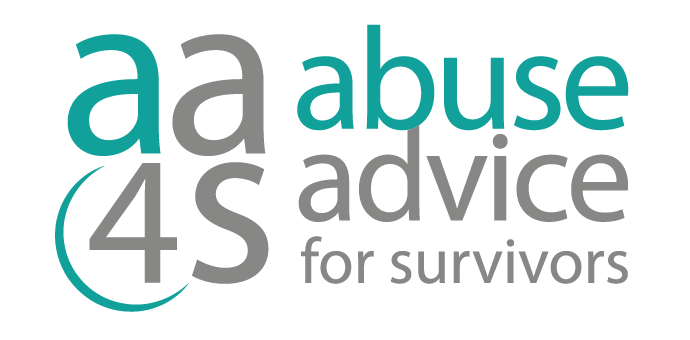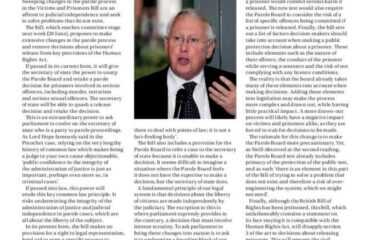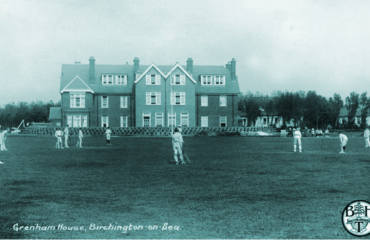
I have been contacted recently by two sets of authors both planning to do articles on False Memory Syndrome (intentional lack of inverted commas), for both a book and an article – see link at the end of this article – to which I gladly contributed, and which inspired me to write about the subject. The important question for someone who deals with victims/survivors of abuse all the time is: What effect does a challenge to the truth of their evidence have upon them, and their feelings?
Definitions
According to Wikipedia a false memory
“is a phenomenon where someone recalls something that did not actually happen or recalls it differently from the way it actually happened”
According to the Oxford Dictionary, however, false memory syndrome is
“a condition in which a person has an apparent recollection of an event that did not actually occur, especially one of childhood sexual abuse that arises during psychotherapy or psychoanalysis. “she later retracted her allegations in what came to be seen as a case of false memory syndrome””
The difference between the two is that the former is a challenge to the accuracy of the victim’s evidence, whereas the other is an alleged psychological syndrome caused by inept experts.
Accused Tactics
If someone is accused of abusing a child, their options are fairly narrow. If they want to put in a defence to a criminal charge, they often maintain that the event simply did not happen, or, if it did, that the child consented. Neither alternative are attractive propositions, and, if put forward unsuccessfully, are likely to aggravate a jury or judge. Secondly, they can allege that the accusations are provoked by a financial motive.
Effect upon the Victim
There is nothing that angers a victim of abuse more than being accused of fabricating allegations. In the past, when they have attempted to disclose abuse, they have usually been disbelieved by police or social workers, particularly if they are a child in care. Commonly, the abuser has threatened them or their family with violence. They are told that should they attempt to make a complaint, no one will believe them, particularly if it is a child’s word against a respected pillar of the community, where, for example, the abuser is the local priest or a teacher.
Whilst False Memory Syndrome has been largely discredited, it has been used in criminal cases where, for example, the accuser has indulged in some therapy in order to sooth the catastrophic effects of the abuse such as flashbacks, nightmares, anxiety, depression etc. It was for this reason, in the very early days of child abuse cases, that police would not allow victims of abuse to have therapy for fear that it may contaminate their evidence. These days, a more enlightened approach is taken. Whilst each victim is offered support from an ISVA (Independent Sexual Violence Advisor), talking about the evidence is prohibited. Their role is more to acquaint the survivor with the workings of the Court, and what they are likely to face.
Sadly, if someone is abused in childhood, particularly during puberty, then it has a catastrophic effect on their ability to trust members of the same or opposite sex thereafter. Where the abuser is an older male care worker and the victim a boy of 14/15 who is persuaded to engage in homosexual relationships by someone in a position of power over them, not only can it cause sexual confusion, but also intense anger when they discover that they have been groomed, and manipulated. Thereafter they find it very difficult to engage in any sort of relationships for the rest of their lives. It causes irreparable damage during a period of time when they are forming their ideas of self. They usually become anti-authoritarian and challenge employers, policemen, lawyers, local authorities, experts etc. So when a Defendant instructed by their abuser or his/her employers challenges their evidence, they become extremely angry, and sink into mental health symptomology.
Claimant & Defendant Expert Evidence
Allegations of False Memory, however, are not uncommon in the cases we deal with, unattractive and ill advised though such tactics may be.
If we are pursuing a claim for compensation, we usually obtain our own report from an independent psychiatrist, which explains the allegations and the effect of them upon our client. The Defendant is then at liberty to obtain their own report, the purpose of which is provide a second opinion from the opponent’s point of view. It is not uncommon for the expert to suggest that the mental health effects from the client suffers are not only the result of the abuse, but also later life events, particularly if other acts of abuse by different abusers who are not the subject of the case, are alleged. This approach is understandable, if not upsetting to the victim/survivor. This is what we call a causation argument, or, put another way, “what caused what?”
We do come across, however, arguments based on the nature of memory itself, where, for example, the abuse took place over 30 years ago. Psychiatrists instructed by the Defendant have been known to argue that it is impossible for the human brain to remember accurately events which took place so long ago. This is, if you like, a false memory argument, but put forward under the banner of academic theory by an expert. It is not a direct attack on the credibility of the victim/survivor or an allegation of lying. The argument is simply made that time renders memory reliability questionable.
What the victim/survivor of abuse fervently desires is their day in Court when they are believed and someone in a position of authority apologises to them for the hurt and psychological damage which the abuse has caused them. They want to “speak their truth”.
Home Affairs Select Committee
Over the years, particularly when the scandals all arose in the early 1990’s, I have been challenged by people, who found out what I did for a job, whether the allegations were true, so shocking were they. This was not an accusation of fabrication, but disbelief born out of incredulity. When I heard in 2002 that the House of Commons Home Affairs Committee was going to hear evidence which alleged that false allegations had been made in the Children’s Home cases I was dealing with in reliance on the word of convicted former care workers maintaining their innocence, I realised that the pendulum had swung too far. Whilst I gave evidence to the Committee, it was a deeply uncomfortable experience. There was a troubling Panorama programme on the subject, which was carefully edited to cast doubt on my protestations of truth.
In reaction to the Home Office Report of 2002, the police stopped looking for corroborative evidence in child abuse cases until Keir Starmer came along in 2013 and rewrote the code in reaction to the Rochdale sexual exploitation cases where, of course, a lot of work had to be done to seek out evidence, so terrified were the victims of their accusers. When the public realised that the likes of Jimmy Savile had abused in plain sight, the public started to realise that abuse transcended every echelon of society.
The excellent article, to which I contributed entitled “The Liverpool ‘false memory’ movement casting doubt on sexual assault victims.” and written by Jessica Bradley, can be read here



